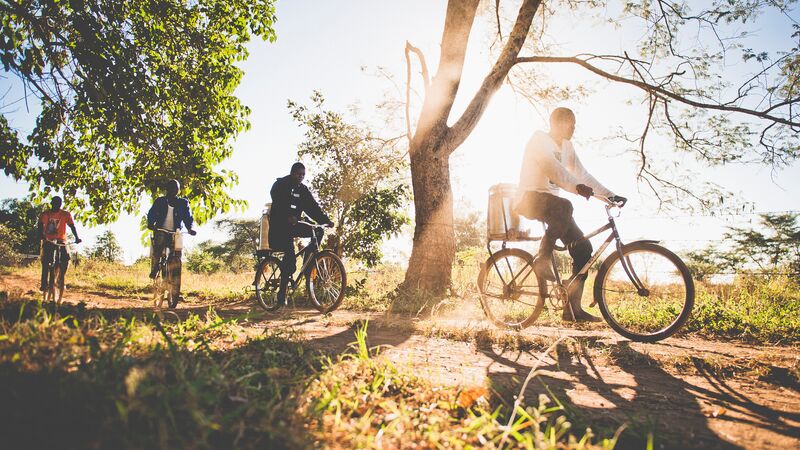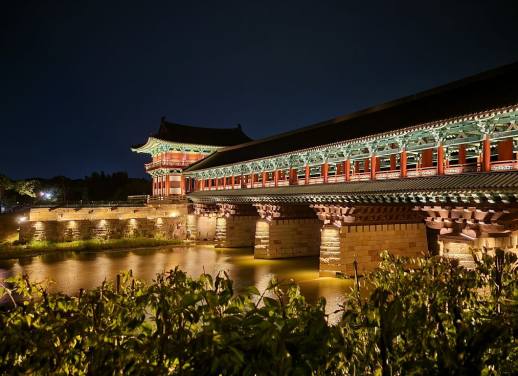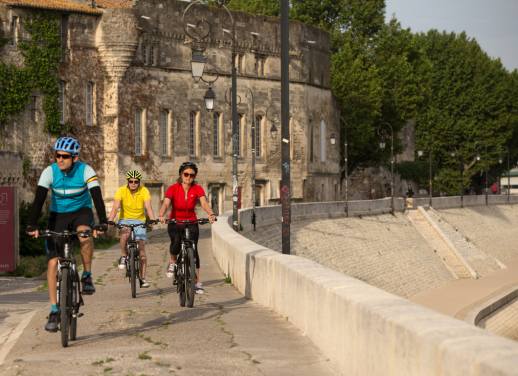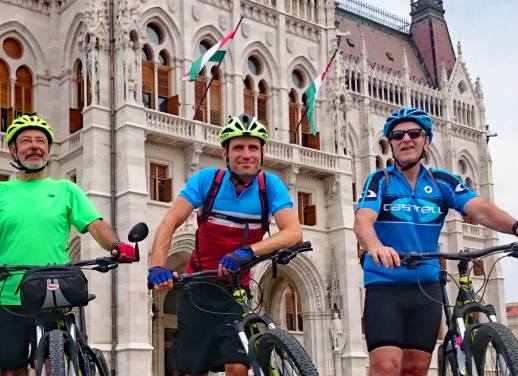World Bicycle Relief (WBR) is a global not-for-profit that distributes bicycles to rural communities all over the world. That’s 700,000 bikes and counting. Our friends at Adventure.com sat down with WBR co-founder FK Day to find out how two-wheeled travel can help people conquer distance, achieve independence and thrive in tough conditions.
This article was originally published on Adventure.com.
The idea for World Bicycle Relief began in 2004, in the wake of the devastating Boxing Day tsunami: a 30-metre-high monster wave that struck the coasts of India, Indonesia, Malaysia, Myanmar, Sri Lanka, Seychelles, Thailand and Somalia.
FK Day, one of the founders of bicycle manufacturer SRAM, saw the destruction on the news.
“My colleagues and I were horrified,” he says, “not only by the loss of life, but also the wholesale devastation. Whole communities were suddenly homeless.”
As part of the bike industry, Day’s thoughts naturally turned to wheels and gears. People in the affected areas still needed to get around, right? Was there something SRAM could do to help?
He called a bunch of relief organisations in the US, trying to lobby interest in a bicycle donation program, but wasn’t having much luck. Then his brother suggested flying out to Sri Lanka. A few days later, Day was on a plane. When he landed in South East Asia, he found local partners and aid organisations ready to help. The team ended up raising funds for 24,000 bicycles, distributing them throughout the region.
They also measured what happened next.
What they found was that bikes are closely tied to livelihood, education and income. Especially in rural communities. “We measured the impact and found three key areas where owning a bicycle made a significant impact: education, healthcare and economic development,” Day says.
That was nearly 20 years ago and World Bicycle Relief has been growing ever since. The goal now is to reach one million donated bikes and empower five million people by 2025.
We sat down with FK to learn more about the organisation and how people can get involved.
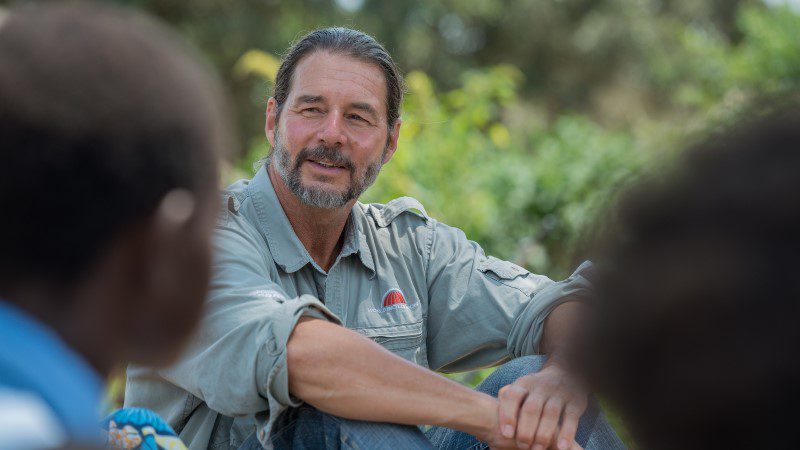
FK, did you notice any regional differences in the bike program?
“Definitely. That was one of the early challenges. In Sri Lanka, we assumed that, because bicycles were easy to source, people would know how to ride, have the skills to maintain a bicycle and be able to access parts and repairs. Our assumptions were correct.
But as we expanded to Africa, it was a completely different story. There were no local suppliers and the bikes that were available were terrible quality. We affectionately called these BSOs, which stands for ‘bicycle-shaped objects’.
Since then we’ve worked to create a bike that can stand up to pretty much anything. We call it the Buffalo Bicycle – manufactured in Taiwan and assembled locally. This is the model we roll out all over the world.”
How does the program work?
“Buffalo Bicycles operates as a social enterprise. By assembling locally, we keep the costs down and we also provide local employment. Our assemblers are paid a good income, learn new skills and many go on to have careers in business management and marketing.
We sell these bikes in more than 50 shops in Colombia, Kenya, Malawi, Zambia and Zimbabwe and the proceeds from those sales go to fund our philanthropic programs. Each design is tested locally, for local conditions and we also train field mechanics in rural communities, so people can access repairs and parts.”
How can bicycles help empower rural communities?
“More than a billion people in rural regions lack access to reliable roads and affordable transportation. In the countries where we work, every day is a long-distance race. Every journey starts and ends on foot. There are often no roads, let alone access to cars, motorbikes or buses. If transport is available, the costs can be prohibitive for people living in low-income communities.
This lack of efficient, reliable transport adversely affects economic and social development and makes it extremely hard for low-income communities to break the cycle of poverty.
We believe that mobility is a fundamental human right. With a quality bicycle, purpose-built to carry heavy loads on rough roads, children can reach school, people can get their goods to market, make more money and healthcare workers can provide care in remote rural settings.”
You also do some work with gender equality, right?
“We sure do. Around 70% of the bikes we distribute go to girls, who are more likely to drop out of school than their male peers, due to distance and security concerns.
Seeing the impact of girls with a bicycle is incredible. Attendance goes up, school performance goes up, tardiness goes down. And the girls feel more confident and in control of their lives. For a lot of these girls, the bicycle is a powerful tool of empowerment.
One story that sticks in my mind is a group of girls in Zimbabwe who were going to drop out of school because of the distance they were forced to travel. When their principal heard World Bicycle Relief was starting a local education program, he personally sought out the girls and said, ‘You must come back. You will get a bike and it will make the journey so much easier.’
Thanks to bicycles, those girls started returning to school. The alternative for them would be ongoing, intergenerational poverty. I hear stories like this from all over the place, again and again.”
What can regular people do to help?
“Well, in 2023, we partnered with Intrepid Travel to launch the Buffalo Bicycle Ride. This is a global cycling fundraising challenge that anyone can join, it took place on Sunday 2 June in 2024.
The great thing about this event is that it gives you a reason to get training. A goal to work towards.
But most importantly, by taking part and fundraising for World Bicycle Relief, you really can have an enormous impact on a person’s life. I can’t emphasise this enough. A bicycle in a rural community isn’t just transportation. It means someone can access the most essential and important opportunities to build a better life.
This is something we often take for granted. A bicycle can mean the chance to go to school, to build a business, or access potentially life-saving healthcare. It’s such a powerful tool.”
Want to support the cause? Donate to World Bicycle Relief and help distribute Buffalo Bicycles in rural low-income communities.

